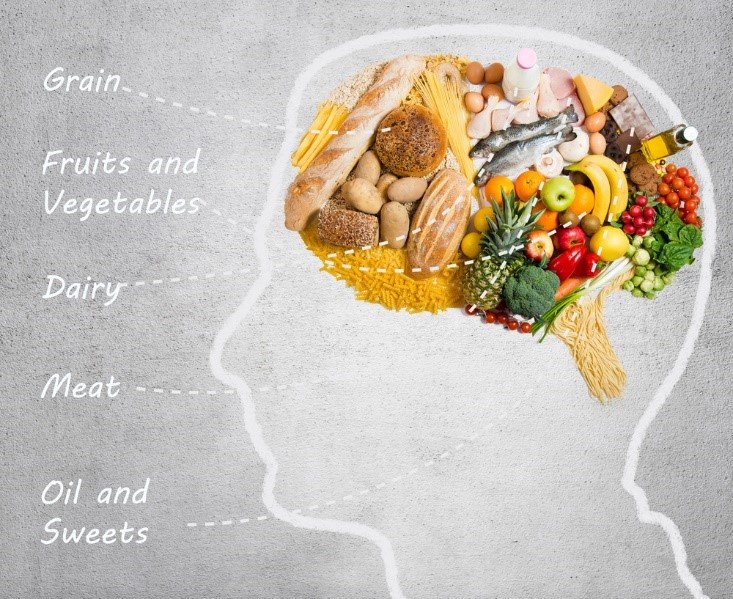
Nutrition Tips for Brain
Nutrition influences the proper functioning of brain and affects mood problem. Optimizing diet with nutritionally, metabolically and biochemically balanced food and supplemental nutrients, is one of the most important factors in keeping brain functions healthy and mood steady.
- Create meals high in low-glycemic legumes such as lentils, chickpeas and soybeans. These foods slow the release of sugars into the bloodstream, helping to prevent excess insulin release leading to insulin resistance and its related health concerns, including depression, dementia, obesity and high blood pressure.
- Eat fresh fruits and vegetables rich in phytonutrients, carotenoids, flavonoids and polyphenols, associated with a lower incidence of nearly all health problems, including dementia, obesity and aging.
- Use more slow-burning, low-glycemic vegetables such as asparagus, broccoli, kale, spinach, cabbage and Brussels sprouts.
- Berries, cherries, peaches, plums, rhubarb, pears and apples are optimal fruits; cantaloupes and melons, grapes, and kiwifruit are suitable, though they contain more sugar.
- A diet high in fiber further helps to stabilize blood sugar by slowing carbohydrate absorption, and it supports a healthy digestive tract. Try to gradually increase fiber to 30 to 50 grams a day, and use predominantly soluble or viscous fiber (legumes, nuts, seeds, whole grains, vegetables and fruit), which slows sugar absorption from the gut.
- Minimize starchy, high-glycemic cooked vegetables, such as potatoes, corn and root vegetables, such as rutabagas, parsnips and turnips.
- Beans or legumes, including whole, traditional soy products, nuts (almonds, walnuts, macadamia nuts, pecans), seeds (pumpkin, sunflower, flax, chia)
- To deal with anxiety, depression and memory problems, healthy foods including a wide array of fats, proteins, carbs and special nutrients, physical and mental exercises may help to feel comfort along with other intervention.
- Glucose: Glucose provides steady energy to the brain. Whole grains are a good source of glucose.
- Omega-3-Fats: Omega-3-Fats are important for healthy brain functions. The major Sources for these Fats are from Animal Source: fish is the main source in animal kingdom e.g. Salmon, Trout, and Sardines. Plant Source: Flaxseed, Soya beans, Pumpkin seeds, Walnuts.
- Lycopene: Evidence suggests that lycopene is a powerful antioxidant which helps to protect against damage to cells which occurs in the development of dementia, particularly Alzheimer’s. E.g. Tomato is good source of lycopene
- Vitamin C: Vitamin C protect against age-related brain degeneration. The best source of Vitamin C are blackcurrants, Amla (Indian gooseberry), broccoli etc.
- Vitamin E: A study published in the American Journal of Epidemiology suggests that a good intake of Vitamin E might help to prevent cognitive decline, particularly in the elderly. Nuts are a good source of vitamin E. E.g.: Walnuts, Almonds, and Hazelnuts etc
- Minerals: valuable minerals like Zinc and Magnesium, which is vital for enhancing memory and thinking skills. Pumpkin seeds supply needed minerals, B vitamins, and tryptophan, which are the precursor to the good mood chemical serotonin.
- Exercise: Exercise helps to keep our brain sharp. Research suggests that regular exercise improves cognitive function, slows down the mental aging process and helps to process information more effectively.
References:
www.bbcgoodfood.com , www.webmd.com

About Post Author